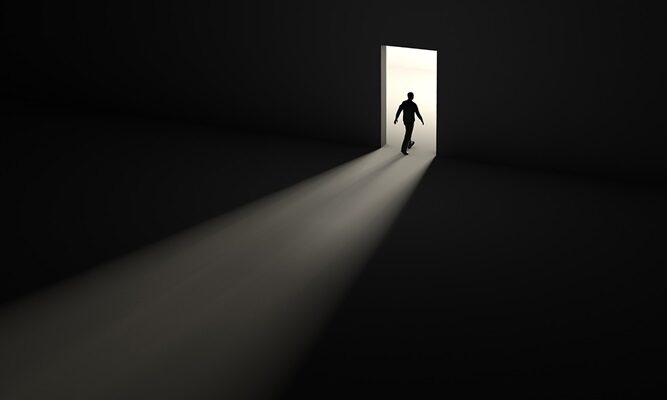What lies beyond the silence of the last breath? Do we dissolve into nothingness or cross into dimensions unimaginable? This ancient question has haunted sages, terrified kings, and humbled prophets. In every graveyard silence, every funeral hymn, and every tearful goodbye lies an aching curiosity: What comes next? Jesus answered with eternal clarity: “I am the resurrection, and the life: he that believeth in me, though he were dead, yet shall he live” (John 11:25). Yet in a world drunk on logic, the afterlife remains the final taboo—spoken of in whispers, laughed at in boardrooms, and longed for in hospital wards.
Prophet TB Joshua once said, “ Death is not the end but the beginning of a new journey. If you live in Christ, you die to live .” This statement ripples through testimonies of near-death experiences and spiritual encounters—moments where souls report seeing tunnels of light, ancestral beings, or hearing voices urging them back. Science offers brain chemistry theories, but millions across ages know: this is more than neurons flickering out. The great oblivion isn’t empty—it’s a curtain pulled back for only the brave or the broken to glimpse.
Paul the Apostle, staring into the very jaws of death, wrote: “ To be absent from the body is to be present with the Lord” (2 Corinthians 5:8). That’s not poetry. It’s prophecy. And it challenges modernity’s arrogance—the idea that all things must be seen to be believed. As Bishop David Oyedepo boldly asserts, “ Eternity is more real than the world you live in now. This is a rehearsal; the real life begins after death.” That statement mocks our polished coffins, our rehearsed eulogies, and our scientific skepticism.
The oblivion, then, is not a vacuum—it is a veil. A veil between mortality and eternity. A veil torn for the faithful, thickened for the wicked. The Holy Bible is unashamedly blunt: “ It is appointed unto men once to die, but after this the judgment” (Hebrews 9:27). That judgment isn’t philosophical. It’s personal. In the great courtroom of the afterlife, our deeds echo louder than our dreams. Our hearts will be x-rayed by the flame of Truth Himself.
Pastor Chris Oyakhilome affirms, “ The human spirit doesn’t die. It returns to God or to condemnation. Choose now, because you won’t choose later.” That’s not fearmongering—it’s a spiritual emergency broadcast. The world is so obsessed with what’s next on Netflix, it forgets to ask what’s next after the grave. This silence is deadly. And hell, according to Jesus in Luke 16, is not metaphorical. The rich man lifted his eyes, tormented in flame—not fiction, but fact. The Great Oblivion is either paradise or peril, depending on your soul’s direction.
Dr. Paul Enenche warns: “ There is no repentance in the grave. The grave does not purify, it seals.” In Nigerian villages, tales abound of spirits that linger, of ancestors who haunt and protect. Yet the Bible insists: “ The dead know nothing” (Ecclesiastes 9:5). There’s no power in the tomb—only destination. The choices of the living determine the fate of the dead. So why gamble eternity for vanity?
If the afterlife is real—and it is—then the most foolish man is not the illiterate, but the immortal soul that lives as though it will never die. As Evangelist Reinhard Bonnke declared, “ You may be as rich as Bill Gates, but one day you will die like a beggar if Christ is not your savior.” The Gospel is not about religion; it’s about relocation—changing your eternal zip code from damnation to divine glory.
Jesus shattered the myth of finality when He rose. “ Why do you seek the living among the dead? He is not here, He is risen” (Luke 24:5-6). That is history’s loudest alarm clock. Death lost its sting. The grave lost its grip. The oblivion is not dark if you walk with Light. Those who die in Christ are not lost—they are hidden, like seeds awaiting spring. The final breath is not a full stop. It is a comma, a turning point, a celestial shift.
So, step beyond the veil, not with fear but with faith. The Great Oblivion is only great to the ignorant. For those anchored in Christ, it is not oblivion—it is the ultimate revelation. As Apostle Ayo Babalola once thundered in a revival meeting, “ The man who walks with God will laugh in the face of death, for he has already crossed over.” Let that be your testimony. Let that be your destination. Eternity waits—but not forever.
– Inah Boniface Ocholi writes from Ayah – Igalamela/Odolu LGA, Kogi state.
08152094428 (SMS Only)




